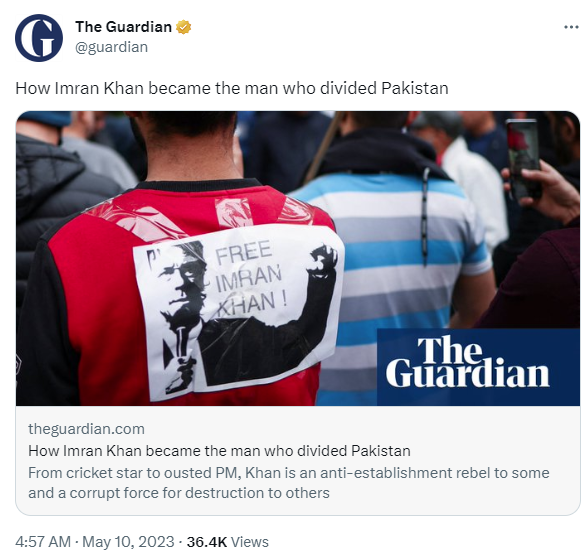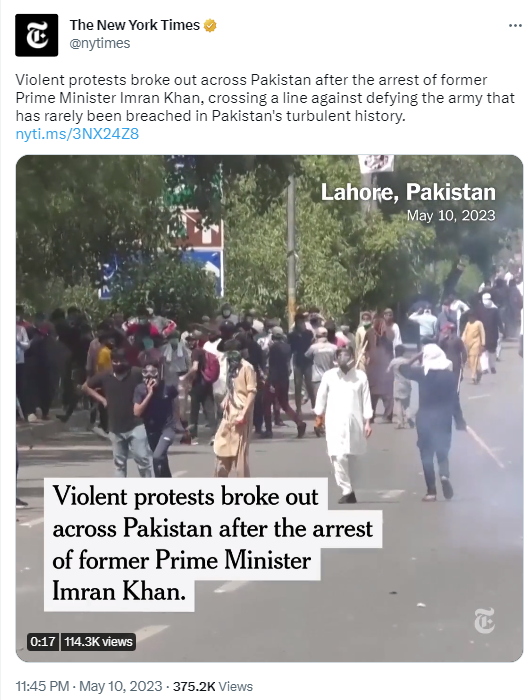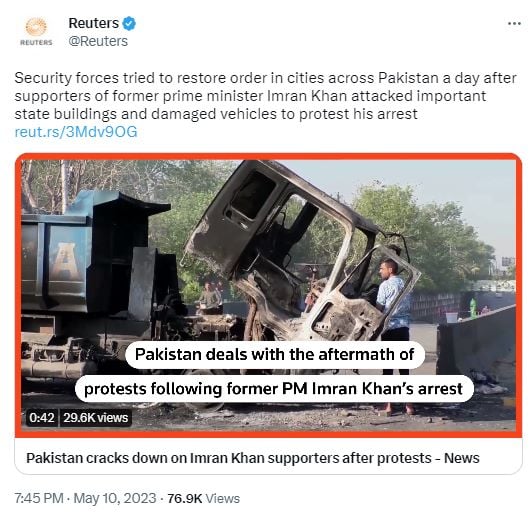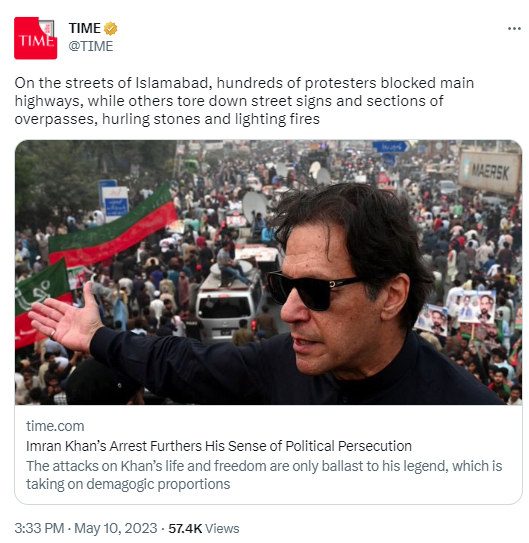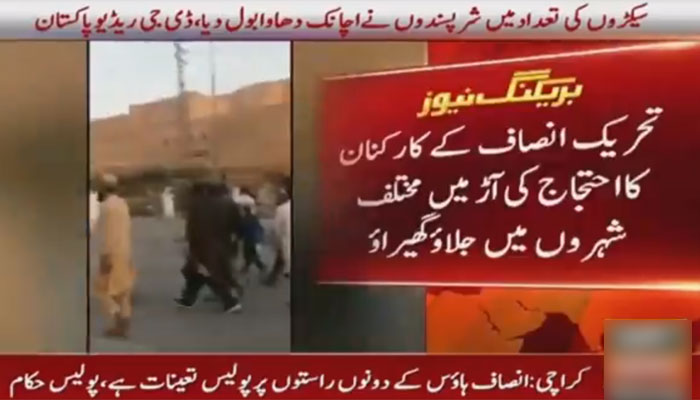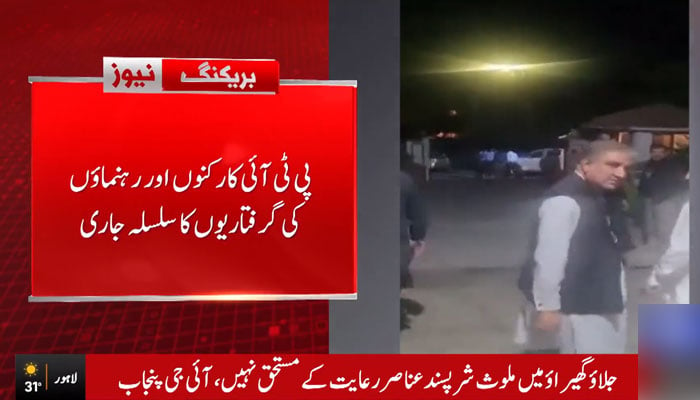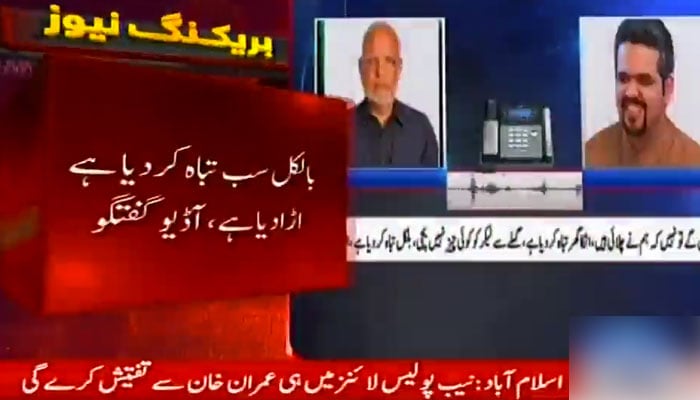Politics
How international media covered Imran Khan’s dramatic arrest
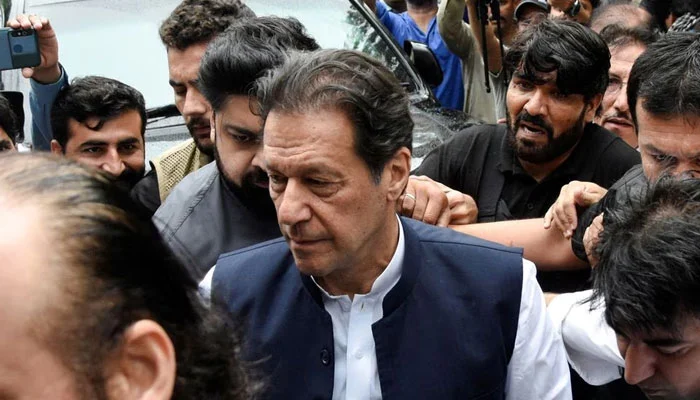
Latest News
The PPP and PML-N will confer on power-sharing arrangements in Punjab today.
Latest News
Sheikh Rasheed says PTI and government negotiations won’t provide any results.
Latest News
Bushra Bibi maintains bail as the IHC concludes the FIA’s petition.
-

 Latest News23 hours ago
Latest News23 hours agoPakistani Internet: Everything you should know about “Africa-2” contemporary cables
-

 Entertainment22 hours ago
Entertainment22 hours agoHania Aamir reveals details about her troubled childhood.
-

 Business23 hours ago
Business23 hours agoWith its second-largest surge ever, PSX approaches 114,000 points.
-

 Latest News22 hours ago
Latest News22 hours agoWapda announces a revised timeline for the K-4 water project in Karachi.
-

 Latest News22 hours ago
Latest News22 hours agoThe PPP and PML-N will confer on power-sharing arrangements in Punjab today.
-

 Latest News18 hours ago
Latest News18 hours agoClimate-related challenges are growing in Pakistan, and the prime minister’s climate aide is advocating for gender-inclusive climate resilience.
-

 Latest News18 hours ago
Latest News18 hours agoAn NIH case of wild poliovirus was discovered in Balochistan, marking the 65th confirmed case of polio.
-

 Latest News18 hours ago
Latest News18 hours agoAs of today, the F-8 Underpass is now open to traffic. Naqvi



